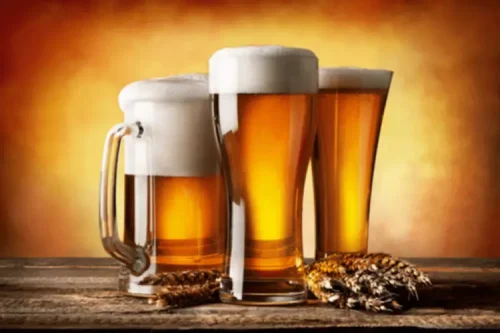
Other medications might include anticonvulsants, anti-nausea drugs and sleep aids, depending on individual symptoms and medical history. It’s crucial to consult a healthcare professional for a tailored treatment plan. Similar to the more common withdrawal shakes, Delirium Tremens will generally begin presenting symptoms after 2 to 4 days, but can sometimes take up to a few weeks to fully develop. DT is extremely dangerous and will often require 100% medically supervised detox, including heart rate and blood pressure monitoring and, sometimes, even emergency life support.
How To Reduce Alcohol Tremors in Recovering Alcoholics

The increased circulation helps your body get rid of heat, cooling it down. It makes it much more comfortable when you get into bed for the evening, as you have less of a tendency to overheat. It’s also a perfect way to cap off the Fourth of July, as many will face balmy, humid weather. If you’re one of those who want to learn how to sleep during the fireworks, our guide can help.
More Questions about Treatment?
When you wake up, your brain becomes overwhelmed with activity, triggering tremors and shaking during a hangover. Once a recovering alcoholic has completely detoxed, tremors will usually resolve. However, long-term alcohol abuse can cause brain, nerve, and liver damage, which may result in permanent tremors. Low blood sugar might also play a role, as alcohol can have an impact on your body’s ability to monitor blood sugar levels. When blood sugar gets low, it can result in shaking, along with other hangover-like symptoms, including sweating and headaches.
Symptoms Associated with Shaking After Drinking
- Hangover shakes can make certain fine motor tasks, such as eating, typing, or dressing, more challenging.
- The following are answers to two frequently asked questions about hangover shakes.
- Those who have struggled with long-term, chronic alcohol dependency may experience shakes throughout the entire withdrawal process and sometimes even weeks beyond that.
- If you’ve recently stopped consuming alcohol and experienced shaking, talk to a doctor.
- A good diet won’t lessen withdrawal effects but will support your body’s ability to deal with them.
In an ICU, your heart rate, blood pressure, and breathing can be monitored closely in case emergency life-support (such as artificial breathing by a machine) is needed. In delirium tremens, the brain is not able to smoothly readjust its chemistry after alcohol is stopped. This creates a state of temporary confusion and leads to dangerous how to stop tremors from alcohol changes in the way your brain regulates your circulation and breathing. The body’s vital signs such as your heart rate or blood pressure can change dramatically or unpredictably, creating a risk of heart attack, stroke or death. Regularly drinking significant quantities of alcohol gets the brain used to a reduced level of stimulation.
What Are The Signs and Symptoms of Delirium Tremens?
Waking up with a hangover is bad enough, but why do you shake after drinking? If you’re having difficulty sticking to your goal or just want some extra guidance, consider reaching out for professional support. Maybe you’ve never been interested in logging your innermost thoughts, but journaling can be a great tool to track your feelings as you work on quitting alcohol. Satisfying hobbies can distract you from wanting to drink, but they also help you relax — something everyone needs to do.
You Experience Severe Symptoms:
Consider shakes and tremors your body’s way of warning you that you may be suffering from alcohol abuse and alcohol dependence, and it’s time to cut back or quit. If you are struggling to give up alcohol on https://ecosoberhouse.com/article/how-alcohol-affects-your-kidneys/ your own, seek medical care at an addiction treatment centre. There are many treatment options available today for alcoholism. They are a clear indication that you are going through alcohol withdrawal.

However, untreated DT can be dangerous, so a person at risk for DT should see a doctor if they get hangover shakes. A person can reduce their chance of hangover shakes by drinking less alcohol. It may also help to maintain hydration and stable blood sugar by consuming nonalcoholic drinks and food containing carbohydrates. After a heavy drinking session, your brain can get used to lower levels of stimulation caused by alcohol’s depressant effects.
What helps with shakes from alcohol withdrawal?
- That said, If you’ve been drinking excessively, then stopping drinking cold turkey can lead to withdrawal symptoms.
- Alcoholism can also lead to liver disease, which, in its advanced stages, can cause a characteristic flapping or shaking of the hands known as asterixis.
- For people whose bodies struggle to process alcohol, they can even last up to a week.
- Different from alcohol shakes, this condition may also cause agitation and hallucinations.

